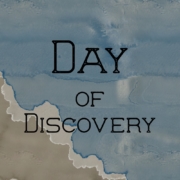MOVE Series# 6, Thanking God When What I Have Isn’t Enough
MOVE Series# 6, Thanking God when what I have isn’t enough
By Bobby Sullivan
INTRODUCTION: When we think of our great God, we often think of Him in terms of the grand, the great and the glorious. After all, He is the God of creation. He stood in the middle of nothing, took nothing, and created everything. That’s big!
There is no question that we serve a God who specializes in the spectacular; who majors in the miraculous and who operates in omnipotence. But I would also point out that He is also Lord of The Little! He is a God who moves in big ways, but He is also a God who is able to take the small, insignificant things of this world and use them for His glory.
The text reveals The Lord of The Little in action. As we watch Jesus feed the multitudes, we need to remember that what He did then, He can do now. He was the Lord of the little on that day and He is still the Lord of the little today.
YOU WILL SOON SEE 1 MAJOR KEY IN THIS STORY ( He gave thanks)
Text: Mark 6: 30-44 30 The apostles gathered around Jesus and reported to him all they had done and taught. 31 Then, because so many people were coming and going that they did not even have a chance to eat, he said to them, “Come with me by yourselves to a quiet place and get some rest.”
NOTE: Mark 6;30 I love Jesus’ words here. Notice three things before we carry on. First, he says, “Come with me by yourselves.” He doesn’t say, “Go away by yourselves,” but “Come with me.” Sometimes when life gets hectic, we just want to get away by ourselves, but true rest and peace is found in fellowship with Jesus. Jesus says, “Come with me.”
And then Jesus says, Second “Come with me to a quiet place.” The word “quiet” here doesn’t mean so much “low in volume” as it does “isolated, apart from others.” We all need a quiet place where we can get away from the normal distractions of life and just be alone with God
Third Jesus says, “Come with me by yourselves to a quiet place and get some rest.” God knows our limits. We can’t be working all the time, even if it is work for God’s kingdom. That’s one of the reasons why God gave us a day set aside especially for worship and rest. We all need to balance out work and rest, time spent with people and time spent with God. The disciples were overworked, and Jesus had compassion on them. He said, “Come with me by yourselves to a quiet place and get some rest.”
32 So they went away by themselves in a boat to a solitary place. 33 But many who saw them leaving recognized them and ran on foot from all the towns and got there ahead of them.
34 When Jesus landed and saw a large crowd, he had compassion on them,( *He didn’t see the crowd-he saw the concern with compassion) because they were like sheep without a shepherd. So he began teaching them many things.
35 By this time it was late in the day, so his disciples came to him. “This is a remote place,” they said, “and it’s already very late.36 Send the people away so that they can go to the surrounding countryside and villages and buy themselves something to eat.”37 But he answered, “You give them something to eat. ” They said to him, “That would take more than half a year’s wages! Are we to go and spend that much on bread and give it to them to eat?” 38 “How many loaves do you have?” he asked. “Go and see. ” When they found out, they said, “Five loaves and two fish.”39 Then Jesus directed them to have all the people sit down in groups on the green grass. 40 So they sat down in groups of hundreds and fifties. 41 Taking the five loaves and the two fish and looking up to heaven, he gave thanks and broke the loaves. Then he gave them to his disciples to distribute to the people. He also divided the two fish among them all. 42 They all ate and were satisfied, 43 and the disciples picked up twelve basketfuls of broken pieces of bread and fish. 44 The number of the men who had eaten was five thousand.
- 35-36 HE IS THE LORD OF LITTLE FEARS
The people have followed Jesus to the other side of the lake, v. 33. Jesus has spent the day teaching them and the hour is growing late, v. 35. The disciples come to Jesus and interrupt His teaching and they demand that He send the people away so they can find food to eat, v. 36.
These men are afraid that the people will not be able to find any food to eat if the hour grows any later. Evidently, they are tired and hungry themselves and they assume that the people must be as well. After all, the crowds had followed Jesus as soon as He left the other side of the lake and they had not taken time to pack any food for the trip.
Now, they are ten miles away from home. They are in a deserted location. They are in a place where no food is to be found. The disciples say, “Lord, you’ve preached long enough! Dismiss the service and let these people go find some food!”
The disciples are filled with doubt and fear. If Jesus keeps this up, none of them are going to get a bite to eat! So, they go to Him expressing their doubts and their fears.
Let me ask you a few questions today.
Do you ever look at the situations you face in life and become afraid and full of doubt?
Do you look at a lost family member and wonder if they will ever be saved?
Do you ever look at a physical need and wonder if it will be all right or if it will lead to something worse?
Are you ever afraid to open the mailbox because it might contain another bill?
Do you ever scan the days of your life and wonder how much time you have left?
Do you ever look at the condition of the world and become afraid, wondering how it will all turn out?
What I am asking is this: Do you ever have fears?
We all do! Being afraid of the unknown is part of living in this world. Having doubts and concerns is nothing to be ashamed of; it is something we all deal with. The problem arises when we become like the disciples.
They were in the presence of the Lord of Glory, but they didn’t believe that He could handle the situation. To their eyes, it looked impossible. They were not coming to Jesus in faith; they were coming to Him in fear! They were saying, in so many words, “Lord, this problem is greater than You are! We don’t think You can handle it! You had better send these folks away, or we are all going to be in trouble!”
You may have never said those words, but you and I have acted in the same manner. We worry over problems and are filled with doubts concerning God’s ability to solve them. Instead of coming to Jesus with a heart that says, “Lord, I believe in You! I know this is a big problem to me, but it is nothing to You!” we carry our problems around and allow them to drain the spiritual life right out of us. I would just remind you that all worry is sin, Rom. 14:23. I would also remind you that the Lord has commanded us to trust Him in the times of fear and to refuse to allow worry a place in our lives, Phil. 4:6-7; Matt. 6:25-34.
Regardless of the fears you may have today, they are little when they are placed next to the Lord.
2.) v. 37-38 HE IS THE LORD OF LITTLE FAITH
When Jesus hears the fears of His men, He says, “Well, you men feed them!” He is using a direct order! He is saying, “If they are hungry, give them something to eat!”
This command is immediately met with an expression of absolute unbelief. From John’s Gospel, we know that Philip is the one who speaks, John 6:7. He says, “Two hundred pennyworth of bread is not sufficient for them, that every one of them may take a little.”
A “penny” refers to the “denarius”, which was a day’s wages for the average worker. It would have taken the average worker eight months to earn the amount of money Philip is talking about. In modern terms it was about $10,000.00. It was more money than they had and more than could ever hope to collect on short notice.
Philip is saying, “Lord, even if we had $10,000.00, we couldn’t satisfy all these people. We couldn’t even give them all a taste. It’s impossible!”
- Jesus said, “Feed them!” The disciple answered and said, “We can’t! We don’t have the resources. This a problem that cannot be solved!” In their eyes, they were facing an impossible challenge.
It didn’t matter that they had already seen Jesus turn water into wine; heal lepers; cast out legions of demons; calm violet storms; heal people with incurable diseases; and raise the dead. It didn’t matter that He had proven Himself to them more times than they could probably remember. All that mattered at the moment was the obstacle they saw before their eyes. They looked at the need and they said, “We can’t, and we don’t believe that You can either!” That’s little faith!
- We are as bad, or worse, than they are! Let me ask you a question. “Has God ever failed you? Have you ever had a genuine need that He didn’t meet? Have you ever seen Him fail to keep one promise that He ever made?” That’s three questions, but the fact is, God has never failed us, and He never will.
- It doesn’t take great faith to get big answers from the hand of the Lord. Consider the following truths:
Matthew 17:20, 20 He replied, “Because you have so little faith. Truly I tell you, if you have faith as small as a mustard seed, you can say to this mountain, ‘Move from here to there,’ and it will move. Nothing will be impossible for you.”
- 23 “‘If you can’?” said Jesus. “Everything is possible for one who believes.”24 Immediately the boy’s father exclaimed, “I do believe; help me overcome my unbelief! “Mark 9:23-24.
- Ill. Matthew 21:21-22 21 Jesus replied, “Truly I tell you, if you have faith and do not doubt, not only can you do what was done to the fig tree, but also you can say to this mountain, ‘Go, throw yourself into the sea,’ and it will be done.22 If you believe, you will receive whatever you ask for in prayer.”
- God will honour little faith! He is the Lord of little faith. But He can do nothing with unbelief,6 But when you ask, you must believe and not doubt, because the one who doubts is like a wave of the sea, blown and tossed by the wind.7 That person should not expect to receive anything from the Lord. James 1:6-7.
When we act like the disciples and look at the problem instead of the Problem Solver, we can expect nothing but failure. However, when we believe God, even for the impossible, we will see Him do the incredible time after time. (Gideon and his army of 300 – Judges 7.) Jesus is the Lord of the little, even little faith!
3.) v. 39-44 HE IS THE LORD OF LITTLE FOOD
Repeat: Jesus knew what to do with nothing
He was about to show them that He was more than enough
After their display of faithlessness, Jesus asks His men how much food they have. He tells them to go and find out, v. 38. We know from John’s account that all the food that was available in that vast crowd was the small lunch of a young boy, John 6:8-9. All he had was “five loaves and two fishes”. The loaves were not big, long loaves of bread. Rather, they were small round pieces of flat bread. About the same size as a biscuit! The fish were not trophy bass or 500-pound Tuna, they were the salted fish that the people of that area ate. They were about the size of sardines. When they return with that small amount, the disciples, this time it is Andrew, expresses even more doubt. He says, “What are they among so many,” John 6:9? These fellows have sized up the crowd and the provisions and they have decided that there just isn’t enough to go around. And, from a human perspective, they are right!
* Philip started calculating what they had to meet the need. He figured a ½ years wages for everyone to have 1 bite!
*Do you have people calculating your faith based on theirs? Mark 6:38 “Philip said this is what we need. What they had and what they needed were 2 different things.
Watch the text! Jesus doesn’t even flinch. In verse 39 He commands the people to sit down in “companies”. This word literally means “In rows like vegetables in a garden.” He told them to relax. Jesus has the people sit down in orderly rows. Their colorful garments making them look like a garden in bloom. That little tidbit doesn’t add much to our understanding of the text, but it does remind us that our God is a God of order!
Then, Jesus “takes” the five loaves and the two fish. He lifts His face toward Heaven, and He blesses the food. By the way, Jesus is not upset that the provisions are so meager. He is not bothered by the small amount of food. He took what was given to Him and He began to break it.
* Vs 41 Jesus thanked the Father for what they had even though what they had wasn’t enough to meet the need.
The words “break” and “gave” are important. They indicate that “He kept on breaking and He kept on giving”. Jesus took those little biscuits and sardines and they were multiplied in His hands. He just kept on breaking them and giving them to His disciples and the loaves and fish kept on multiplying. Jesus exercised creative power to accomplish this miracle.
To feed five thousand men plus women and children, Matt. 14:21, it would have required them to empty their baskets and return to Jesus for refills. Every time they came back, they probably expected to find that Jesus has run out of food. But He never did!
He kept breaking and giving until every person in the crowd had no more desire for food. And, when the disciples took of the leftovers, there were twelve baskets full. One for every doubting disciple
Every time he declared something, he demonstrated something.
Jesus was already the bread of life-The people didn’t know it yet
Too much all at once would cause confusion
*Don’t ever tell God who made you what’s not in you
*Don’t ever wait on a conversation to validate your faith and Gods voice. Faith says I know if before you show it. I know it’s on the inside before my friends see it on the outside.
*You have to definitely know it in a season of deficit that you’re dependant on him.
*Do you know what you’re carrying on the inside of you?
When they found out what was already there it changed. Jesus had an ocean of fish in him and acres of barley for bread at his disposal.
*When he said, I am the bread of life. He withdrew from his deposits.
“For the BREAD of God is that which comes down from heaven and gives life to the world. John 6:41
They said to him, Sir give us this bread always. Jesus said, I am the bread of life. Whoever comes tome will never be hungry and whoever believes in me will never be thirsty.” John 6:35 48 and 51
- HE did not become bread-he already was
- The moment of discovery is not the moment of deposit
- WHEN THEY FOUND OUT…..The day you find out is the day you shout.
- Sometimes in your day of doubting you need to start shouting
Question: “What did Jesus mean when He said, ‘I am the Bread of Life’ (John 6:35)?”
Answer: “I am the Bread of Life” (John 6:35) is one of the seven “I Am” statements of Jesus. Jesus used the same phrase “I AM” in seven declarations about Himself. In all seven, He combines I AM with tremendous metaphors which express His saving relationship toward the world. All appear in the book of John.
John 6:35 says, “I am the bread of life; whoever comes to me shall not hunger, and whoever believes in me shall never thirst.” Bread is considered a staple food. Bread is such a basic food item that it becomes synonymous for food in general. We even use the phrase “breaking bread together” to indicate the sharing of a meal with someone. When the Jews were wandering in the desert for 40 years, God rained down “bread from heaven” to sustain the nation (Exodus 16:4).
All of this plays into the scene being described in John 6 when Jesus used the term “bread of life.” He was trying to get away from the crowds to no avail. He had crossed the Sea of Galilee, and the crowd followed Him. After some time, Jesus inquires of Philip how they’re going to feed the crowd. Philip’s answer displays his “little faith” when he says they don’t have enough money to give each of them the smallest morsel of food. Finally, Andrew brings to Jesus a boy who had five small loaves of bread and two fish. With that amount, Jesus miraculously fed the throng with lots of food to spare.
Afterward, Jesus and His disciples cross back to the other side of Galilee. When the crowd sees that Jesus has left, they follow Him again. Jesus takes this moment to teach them a lesson.
He accuses the crowd of ignoring His miraculous signs and only following Him for the “free meal.” Jesus tells them in John 6:27, “Do not labor for the food that perishes, but for the food that endures to eternal life, which the Son of Man will give to you. For on him God the Father has set his seal.” In other words, they were so enthralled with the food, they were missing out on the fact that their Messiah had come.
Follow the Messiah not the Miracle of the Manna.
Miracles should always lead you to the Messiah not the messenger.
Miracles do not necessarily produce faith.
So, the Jews ask Jesus for a sign that He was sent from God (as if the miraculous feeding and the walking across the water weren’t enough). They tell Jesus that God gave them manna during the desert wandering. Jesus responds by telling them that they need to ask for the true bread from heaven that gives life. When they ask Jesus for this bread, Jesus startles them by saying, “I am the bread of life; whoever comes to me shall not hunger, and whoever believes in me shall never thirst.”
This is a phenomenal statement! First, by equating Himself with bread, Jesus is saying he is essential for life. Second, the life Jesus is referring to is not physical life, but eternal life. Jesus is trying to get the Jews’ thinking off of the physical realm and into the spiritual realm. He is contrasting what He brings as their Messiah with the bread He miraculously created the day before. That was physical bread that perishes. He is spiritual bread that brings eternal life.
Third, and very important, Jesus is making another claim to deity. This statement is the first of the “I AM” statements in John’s Gospel. The phrase “I AM” is the covenant name of God (Yahweh, or YHWH), revealed to Moses at the burning bush (Exodus 3:14). The phrase speaks of self-sufficient existence (or what theologians refer to as “aseity”), which is an attribute only God possesses. It is also a phrase the Jews who were listening would have automatically understood as a claim to deity.
Fourth, notice the words “come” and “believe.” This is an invitation for those listening to place their faith in Jesus as the Messiah and Son of God. This invitation to come is found throughout John’s Gospel. Believing in Jesus means placing our faith in Him that He is who He says He is, that He will do what He says He will do, and that He is the only one who can.
Fifth, there are the words “hunger and thirst.” Jesus isn’t talking about alleviating physical hunger and thirst. The key is found in another statement Jesus made, back in His Sermon on the Mount. In Matthew 5:6, Jesus says, “Blessed are those who hunger and thirst for righteousness, for they shall be satisfied.” When Jesus says those, who come to Him will never hunger and those who believe in Him will never thirst, He is saying He will satisfy our hunger and thirst to be made righteous in the sight of God.










Leave a Reply
Want to join the discussion?Feel free to contribute!